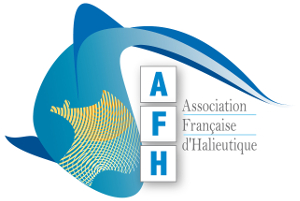Centre for Applied Research at NHH (SNF), a research center at the Norwegian School of Economics, Bergen, Norway, invites applications for a three year post-doc position.
The position is funded by the Research Council of Norway as part of the project Producion in the Barents Sea Fisheries. The project has an interdisciplinary scope and candidates should have, or be close to complete, a PhD in economics, ecology, or a related field. The first objective of the project is to establish production or profit functions for Barents Sea fisheries and has a strong, empirical profile. The second objective is to estimate the long-run social value of the Barents Sea ecosystem that reflects resource use, trophic and market substitutions and interactions. These estimations will build on ecological and economic models of Barents Sea ecosystems and fisheries. Applicants should outline a research plan within the scope of the project, broadly defined (further details on the project are given below). This plan could entail applying parts of our framework to other ecosystems. Working in Norway, the post-doc will have access to detailed and unique Norwegian fisheries data and be situated in one of the fisheries economics hubs of the world. In addition to the appropriate research experience with regard to skills and knowledge, the ideal candidate has strong written and oral communication skills; English fluency is required, working proficiency in a Scandinavian language is preferable.
The salary will be competitive with corresponding positions in Norway. The post-doc researcher will have access to Norwegian benefits in terms of free health care and other public services, and SNF offers a favorable pension scheme. As part of a project funded by the Research Council of Norway, the researcher also is eligible for travel funds for research stays abroad during the fellowship period. One can apply for extension of the fellowship period corresponding to the length of the stay abroad. Further details available here: https://www.forskningsradet.no/en/call-for-proposals/2019/personal-overseas-research-grant-for-doctoral-and-post-doctoral-fellows/.
SNF (http://snf.no) is a research institute whose principal owner is the Norwegian School of Economics (NHH). We conduct research and research-based studies for central decision makers in the private and public sector. Our project portfolio covers a wide range of research areas, including labor market and education, behavioral economics, taxation and public economics, industrial economics and competition policy, and energy and resource economics. Bergen on the west coast of Norway has a mild and coastal climate and offers ample opportunities for culture and outdoor activities.
Applicants are asked to submit a brief application letter, a complete CV, certificates with grades, and other relevant documentation. Up to five publications or working papers and and a research plan should also be attached. Applications should be submitted by e-mail to snf@snf.no. Assessment of candidates begins on March 1, 2020, and continues until the position is filled. Enquiries about the position can be directed to project leader Sturla Kvamsdal (sturla.kvamsdal@snf.no).
Project summary:
The main research question is how inputs and outputs combine in the
Barents Sea fisheries, and establish a measure of the resulting social value. A crucial moment is the consideration of productivity growth (growth in fishing power), which comprises technical change, changes in technical efficiency, and capacity utilization. Another important question is the role of resource abundance, not least how the relative abundance between different target and bycatch species affect production and possibly fisher behavior. Ecological interactions between species must also be taken into account. Further issues that we will consider are climatic drivers, market forces, and regulatory impacts on fisheries outcomes. A fundamental challenge will be to distinguish between changes in productivity, changes in abundance, ecological and environmental changes, and regulatory and market impacts.
Understanding fisheries requires an interdisciplinary approach and involves biology, ecology, economics, and governance, and requires statistical, methodological, and theoretical expertize. The project relies on a basic understanding of the functioning of the ecosystem, market and regulatory constraints and opportunities, technological development, and fisher behavior. We will further consider a trip-level analysis of fishing effort, resource use, and catches, considering variations across years, seasons, areas, and jurisdictions. We also engage with stakeholders to complement views on regulatory, economic, and environmental issues, and future scenarios for fisheries in the Barents Sea.
The project represents a broad, bottom-up approach to provide high-level indicators of sustainable development and measures of ecosystem wealth. These measures go beyond traditional, market based evaluations to reflect resource scarcity and limits to trophic substitutions and are fundamental to long-run progress in renewable resource use from clean and healthy oceans.
